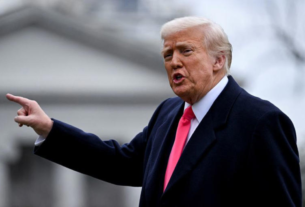The White House has condemned the Associated Press (AP) for continuing to use the name “Gulf of Mexico” after former President Donald Trump announced a new name for the body of water. The dispute highlights growing tensions over language in political and media circles.
“This is about respecting the decisions of our leaders,” a White House official said. The administration argues that media organizations should acknowledge Trump’s renaming as part of public discourse.
Trump announced the name change during a campaign rally in Texas. He claimed the new name reflects a “stronger American identity” and better represents the region’s history.
The AP has continued using the traditional name in its reporting. Editors say their style guide follows internationally recognized geographic names.
Media organizations often rely on established naming conventions. The term “Gulf of Mexico” is used in maps, official documents, and international treaties.
Some Republican lawmakers support Trump’s renaming. “We should not let foreign influence dictate our geography,” a senator said.
Critics argue that renaming geographic features for political reasons is unnecessary. Many believe the name should remain unchanged to avoid confusion.
The White House has urged major news outlets to adopt the new term. Officials say it reflects a shift toward “patriotic” place names in American discourse.
Historians note that geographic names rarely change without broad consensus. Past efforts to rename major landmarks have faced resistance.
The U.S. government has an official process for renaming geographic locations. The U.S. Board on Geographic Names typically reviews and approves such changes.
International bodies also recognize place names. The United Nations follows standardized geographic names in global maps and records.
Trump’s decision has drawn mixed reactions from the public. Some supporters praise it as a bold move, while critics call it a distraction from serious issues.
The AP has defended its editorial choices. “We report based on facts and widely accepted geographic terms,” an editor stated.
Other media organizations have not announced plans to change their language. Major networks and newspapers continue using “Gulf of Mexico” in coverage.
Political analysts say the controversy reflects broader debates over media bias. Some argue that language choices influence public perception of political figures.
Social media users have responded with both support and criticism. Some view the renaming as symbolic, while others see it as unnecessary political theater.
The Biden administration has not formally recognized Trump’s proposed name change. Federal agencies continue using “Gulf of Mexico” in official documents.
Legal experts say renaming a geographic feature requires government approval. No executive order or legislation has been introduced to formalize the change.
Trump’s supporters argue that names should reflect American values. They believe using the traditional name gives unnecessary recognition to Mexico.
Geographers say the name “Gulf of Mexico” has historical significance. The name dates back centuries and is used in international agreements.
The White House has accused media outlets of ignoring Trump’s influence. Officials say his policies and decisions continue to shape national discussions.
Public opinion remains divided on the issue. Some Americans support Trump’s efforts to redefine national symbols, while others see no reason for change.
The AP has not changed its stance despite political pressure. Editors say their job is to report news, not to endorse political decisions.
Government agencies have not made any moves to change official maps. The National Oceanic and Atmospheric Administration still refers to the area as the “Gulf of Mexico.”
The debate over geographic names is not new. Past efforts to rename landmarks have often sparked controversy and political debate.
Trump’s proposed renaming is unlikely to become official without legislative action. The White House continues to push for recognition but faces opposition from media and international bodies.



